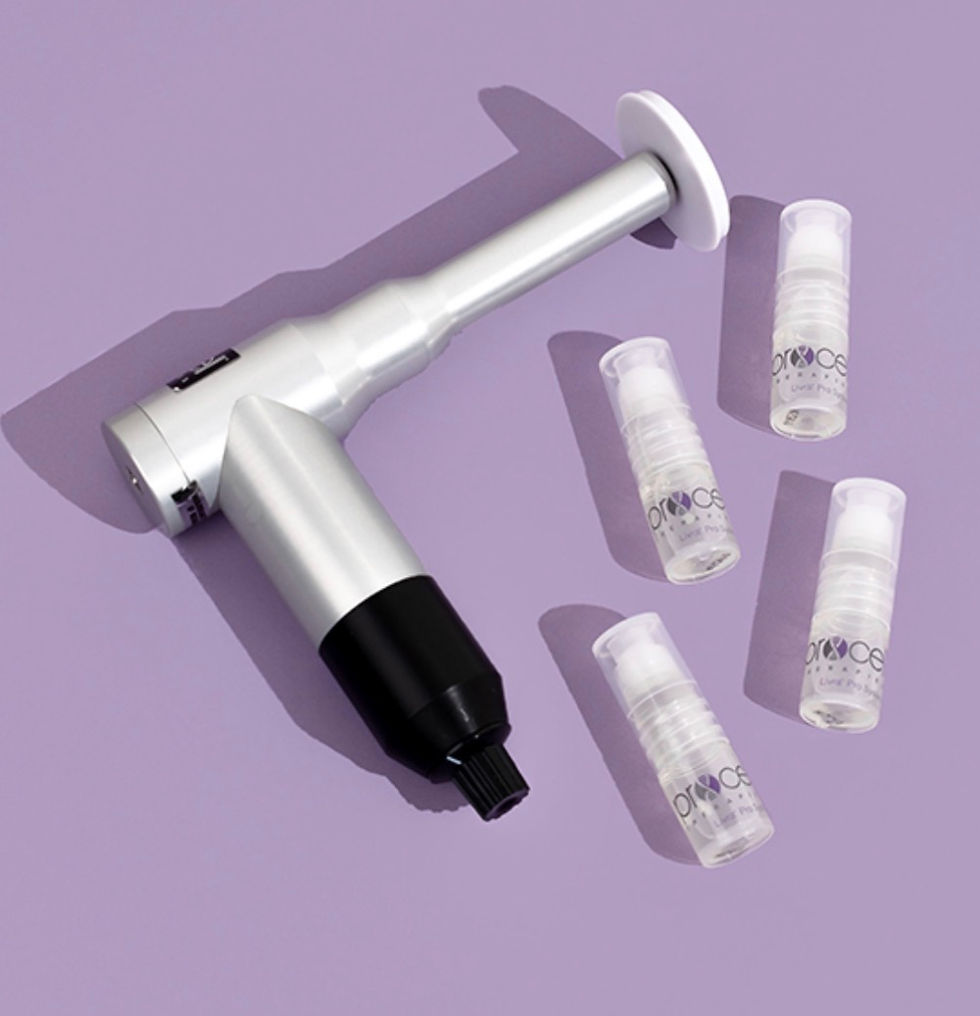The Black Girl’s Guide to Sunscreen
- BijouSkin.com

- Aug 10, 2020
- 3 min read
Updated: Oct 27, 2020
Do Black People Need Sunscreen? Isn’t Melanin Enough?

As a person of color we have been told that we don’t have a need for sunscreen. Often times people of color believe our melanin can protect our skin. Did you know that darker skin only has an SPF of 13. That only protects us for maybe 130 mins. Some of us have tried sunscreen on our vacations or chosen foundations with SPF included. But the struggle is real when you don’t really know what you are looking for-we’ve all been there. Sarah J.
Have you been on the beach tediously applying the recommended amount of sunscreen for the recommended amount of time (aka forever), you’re left with a white cast all over your skin. It’s embarrassing, and suddenly you find that you don’t really want to be outside anymore…
Or maybe you’re on the other end of the spectrum. You love your melanin, something fierce, and so you can’t imagine covering it up with anything. Besides, Black people don’t get sunburns, right?
Or perhaps you just don’t like the feel, smell, or price of sunscreen.
We get it. There are about a dozen or more reasons that Black women (and men!) have a complicated relationship when sunscreen.
But here’s the thing. You have to wear sunscreen. (One more time for the people in the back: you have to wear sunscreen.) That’s why we’ve put together a guide breaking down why sunscreen is so important, what types of sunscreens are available, and how we, as black women, can make the right choices for our skin.
Why is sunscreen so important?
Sunscreen protects the skin from UVA and UVB rays. Direct exposure to these types of rays can lead to a myriad of skin issues, including skin cancer. While it’s true that women with very dark skin are far less likely to be affected by skin cancer, there’s no ‘test’ to see how dark is dark enough to protect you. As we know, Black women come in all shades—and most are at some sort of risk.
If you still won’t wear it for your health, do it for your vanity. Sunscreen is the most effective product for preventing fine lines and premature aging. UVA rays penetrate the skin and cause visual damage: fine lines, wrinkles, moles, and skin discoloration.
What’s the difference between mineral and chemical sunscreen?
Have you ever heard someone refer to a product as sunscreen and another as sunblock? There’s a reason for that.
Sunscreen refers to sun protection factor (SPF) products that use chemical compounds to protect against rays. These compounds absorb sun rays, perform a chemical reaction, and disseminate them as heat.
Sunblock refers to SPF products that use ingredients to create a physical barrier between you and the sun. Any rays are deflected outwards. These typically include ingredients like zinc or other minerals.
There’s no evidence to suggest that one type of sun protection is safer* than the other, despite some internet rumors. However, some people prefer a mineral-based sunscreen because it provides more coverage. (*The only caveat to this is when coral reefs are involved; if you are swimming near a reef, you should avoid oxybenzone or octinoxate which are both found in many chemical sunscreens. These ingredients may disrupt ecosystems.)
What do the numbers mean?
You’ve probably seen sun protection advertised with numbers like SPF 50+ or SPF 15. The number simply tells you how long your skin will be protected from a burn when using it versus not wearing a product. So with SPF 15, it will take 15 times longer to get a sunburn.
As Black women, we have more natural “SPF,” so we don’t need as high numbers of SPF in our sun protection as others. However, we don’t have enough to entirely skip sun protection, so I recommend at least an SPF 30+.
What should Black women look for in a sunscreen?
If you’re trying to avoid that white, chalky look, you’ll have more success with a chemical sunscreen than a mineral sunscreen. But, the most important thing to look for is a sunscreen you’re comfortable wearing every single day.




Comments